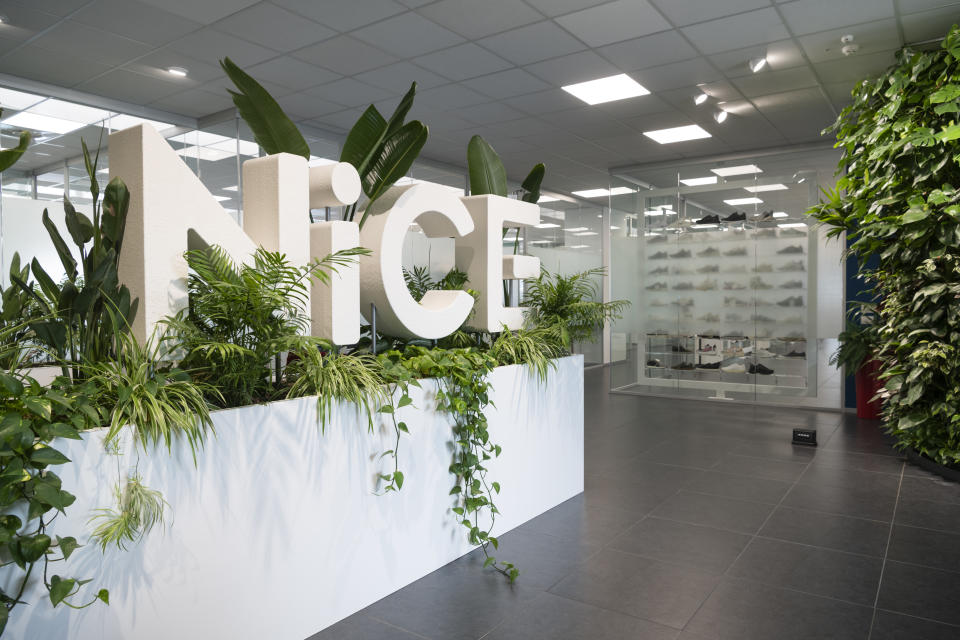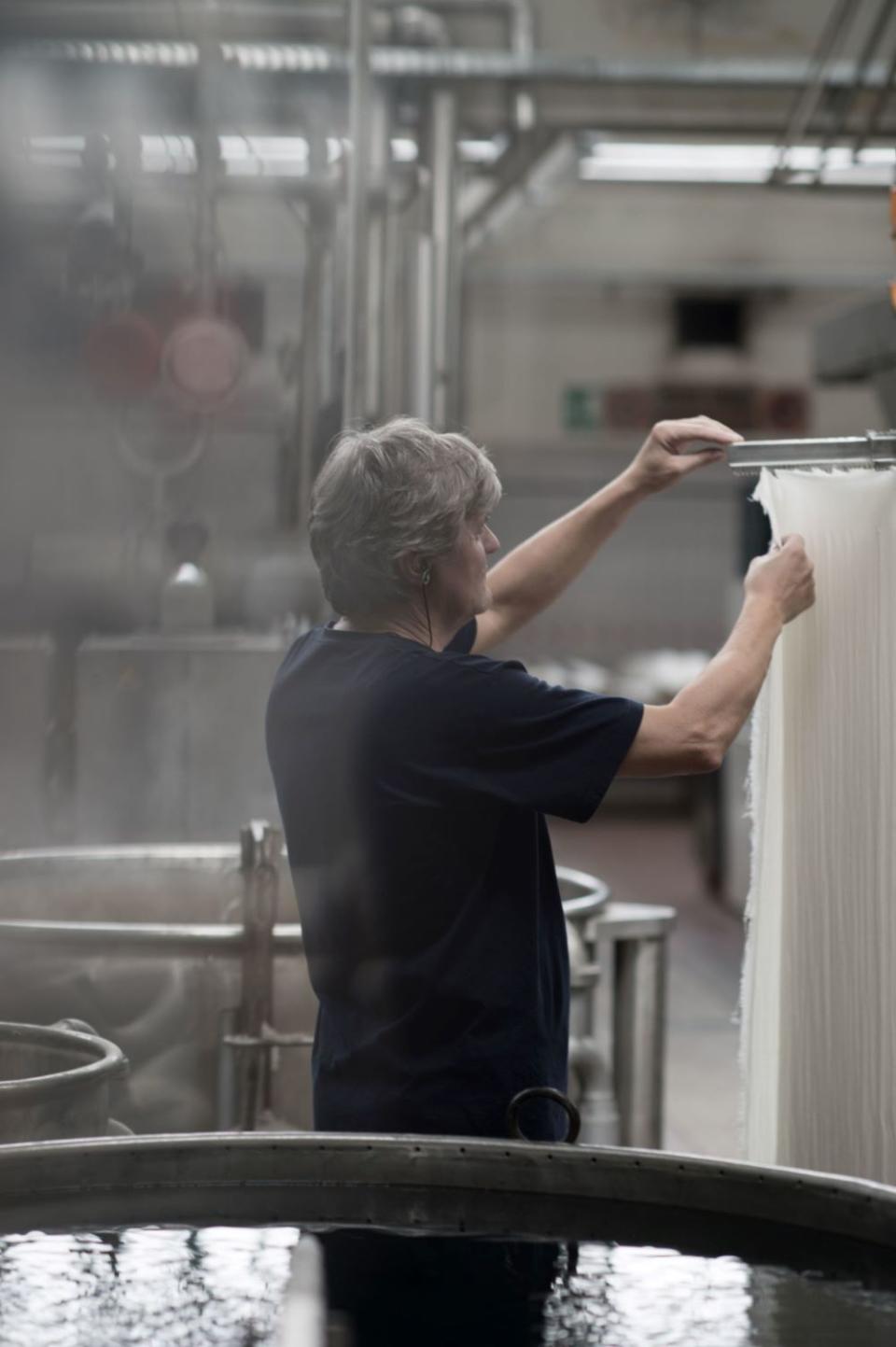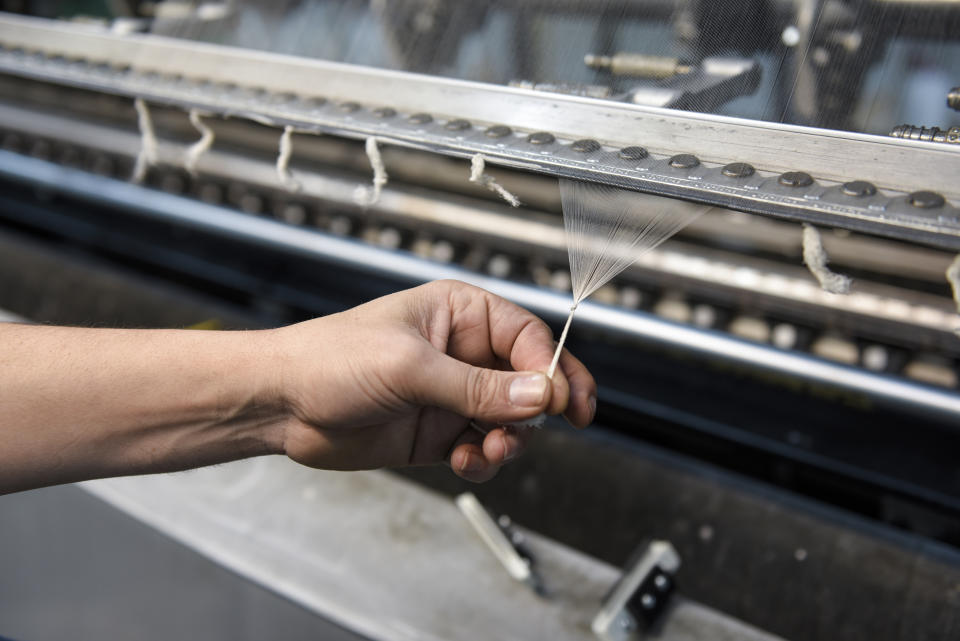MILAN — The wave of consolidation in the Italian supply chain shows no signs of slowing down.
At a time of uncertainty and volatility, marked by the rapid decline in luxury consumption since the last quarter of 2023, smaller suppliers at the downstream end of the fashion production pipeline are at risk of losing ground.
More from WWD
According to Confindustria Moda, small and medium-sized businesses make up the majority of the 62,000 Italian fashion companies and are the backbone of Made in Italy production, which entrepreneurs increasingly want to protect through mergers and acquisitions, partnerships and deals to achieve common goals.
The trend, which emerged in the years immediately following the pandemic, has changed the nation’s pipeline landscape. It is now less dependent on small family businesses with few management and financial resources to serve the luxury giants, their most important customers, and to meet the challenges ahead, including mandates from policymakers to improve fashion’s sustainability practices and fashion industry. textile sectors.
“The control over the supply chain exercised by large groups – if handled in a transparent manner – represents a major advantage as it tends to eliminate bad practices that are sometimes deeply entrenched. [in the industry]” says Luca Sburlati, CEO of Pattern, an Italian manufacturing pool. “Customers and major brands should consider fair compensation for the production pipeline [better] allocation of profits to avoid the ‘price war’ in the supply chain that compromises quality.”


Last month, listed Pattern, which is active in the prototyping and production of fashion collections for a range of luxury brands, bought out legendary knitwear specialist Umbria Verde Mattioli for 20 million euros in its latest merger and acquisition activity, expanding its division there. product category, which already includes the companies SMT, Zanni and Nuova Nicolo.
Pattern joins other players active in the same space. In more ways than one, Italy’s fashion system has proven inventive, with conglomerates forming over the past decade that group supplier companies under one umbrella.
In addition to Pattern, other examples include Gruppo Florence, a €670 million group currently consisting of 26 manufacturers, and Holding Industriale, founded in 2008 by Claudio Rovere with a portfolio of 12 companies and a turnover of €350 million in 2023.
Founded in 2021 by Matteo Marzotto, MinervaHub includes more than 10 companies operating in the fashion-luxury manufacturing space for the design, sportswear, cosmetics, jewelry and automotive sectors. In April last year, investment holding company San Quirico SpA acquired a 75 percent stake in MinervaHub, with Marzotto remaining a minority stakeholder and retaining his role as president.
Smaller players are also rushing to protect their suppliers to avoid losing knowledge and skills. For example, Nice Footwear – a Padua, Italy-based company specializing in the design, development, production and distribution of casual and sports footwear – has become an aggregator of sorts since 2021. It has acquired 80 percent of Favaro Manifattura Calzaturiera and Emmegi. Srl, both shoe manufacturers, currently generate a turnover of 46.9 million euros.


“Our ambition is to continue our M&A objectives and create a luxury, Made in Italy pool. Our goal is to be an aggregator of small craft workshops of top quality,” said CEO Bruno Conterno, emphasizing that the founders have always remained involved in the management, operations and ownership of the company. “We like to describe [the deals] as partnerships, because we believe in the power of networking with other companies.”
In neighboring Treviso, Italy, Eurmoda Group, which produces and supplies accessories for high-end fashion brands, last year acquired 100 percent of Macuz Srl, a legendary Florentine company active in the production of high-quality metal accessories. In October 2019, private equity firm Mindful Capital Partners took control of Eurmoda and created the holding company Margot SpA, with the aim of building a platform of excellence in the sector throughout Italy.
In Como, silk specialists Ratti and Mantero joined forces in May to each acquire a 20 percent stake in dyeing and finishing company Color Como for an undisclosed amount. Commenting on the deal, Franco Mantero, president of the eponymous company, said he was “satisfied to have been able to sign the deal with Ratti, because some topics are important to everyone, regardless of the competition.”


A WWD survey found that several entrepreneurs behind the deals highlighted how progress in ESG, a driving factor in today’s competitive landscape, is being significantly driven within the manufacturing poles.
“As majority stakeholders, our goal is to value the skills of the artisans and offer a range of services that smaller companies could hardly offer on their own,” Conterno said, citing technological advances, sustainability and digitalization, among other issues that the group tackles on their behalf. its companies. Ultimately, he said, partnerships are aimed at increasing competitiveness.
Through its business configuration, Pattern – like many other conglomerates – has created local, vertically integrated pipelines consisting of companies located within a few miles of each other. This is in line with a continuing trend towards making or re-making production capacities available to players in the premium and luxury fashion sector.
To this end, clothing interlining manufacturer Chargeurs PCC – part of France-based Chargeurs, a holding company listed on the Paris Stock Exchange – signed a binding offer last month for two strategic business units of the Swiss company Cilander. These are the shirt textile activities, including the Alumo, Eugster & Huber, Swiss Ghutra and Brennet brands, and a factory in Lützelflüh, Switzerland, specializing in high-quality textile finishing processes.


“We are increasingly structured with an organization focused on local for local and near-shoring [manufacturing]….This gives us maximum control over the supply chain and allows us to provide customized solutions to our customers without being dependent on just one [geographic] production center, which we saw could lead to production shutdowns due to geopolitical issues,” said Gianluca Tanzi, CEO and President of Chargeur PCC.
The consensus is that opening up to industrial or private equity investments is increasingly becoming a lever for success.
According to Lincoln Germanetti, chairman of Filatura di Tollegno 1900, which in 2022 sold its wool spinning mills in Italy and Poland to Indorama Ventures Public Company Ltd., a global sustainable chemical company, “the choice we have made has given us strength and support. allowing us to continue our innovation journey with confidence. Furthermore, the partnership has opened new growth prospects and allowed us to rethink our development strategies based on new shared paradigms.”
This also applies to Fabio Campana, CEO of Lanificio dell’Olivo, which is part of the Filidarte Group of holding company Ethica Global Investments, founded in 2020 to promote the excellence and know-how of the Italian spinning industry. The business includes Manifattura Sesia, whose classic, luxury-oriented offering is complementary to that of Lanificio dell’Olivo.
Fashion brands have also been increasingly acquiring shares in their suppliers – for example, Brunello Cucinelli and Chanel teamed up on a deal to acquire a minority stake in yarn maker Cariaggi, while Ermenegildo Zegna Group and Prada Group twice joined forces to acquire a majority stake in Filati Biagioli Modesto SpA in 2021, and in 2023 to each buy a 15 percent stake in knitwear and fine yarn specialist Luigi Fedeli e Figlio Srl, which this month celebrated its 90th anniversary at Pitti Uomo.
Earlier this year, Missoni acquired Tricotex Srl, a leading manufacturer of high-performance textiles specializing in Raschel knit fabrics – a hallmark of Missoni – based in Gallarate, on the outskirts of Milan.
The best of WWD